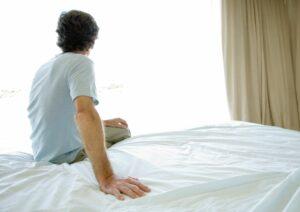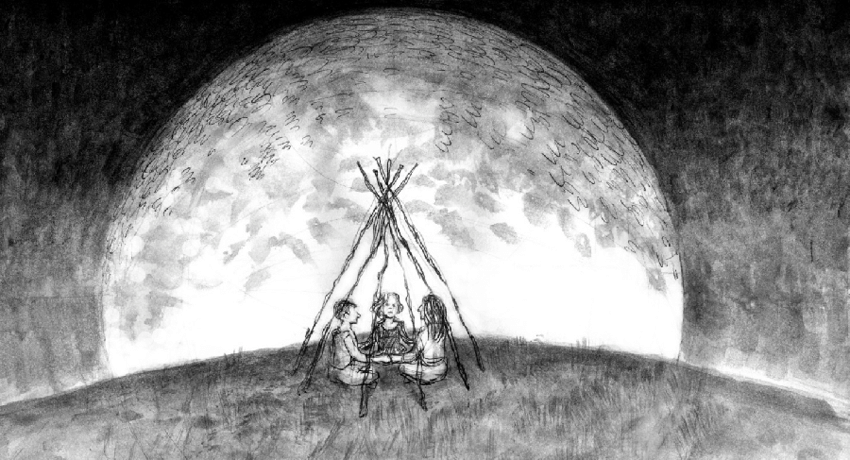Melancholia is a psychological disorder that was first described by Hippocrates in the fourth century BC. It has been studied and debated since then, but it remains an enigma to many people. In this article, we will explore what melancholia is, from its definition to its treatment options.
Contents
Understanding Melancholia

The first step to understanding this feeling is to break it down into its individual parts. Melancholia is like a sickness of the soul. It makes people feel very sad, hopeless, and worthless. People who are sad may think they don’t deserve to be with friends and family. They might not feel like they should see them. People might feel guilty or think there is no hope for them to be happy if they have depression.
Melancholia doesn’t just affect how a person feels emotionally – it can have physical effects too. People might have problems sleeping, eating, or concentrating. Their thoughts might race and they may feel like they are going crazy.
Depression can be a very isolating feeling. People who suffer from it often don’t want to talk about it because they feel ashamed or embarrassed. It’s important to remember that you’re not alone in this. Millions of people suffer from depression every year and there is help available.
Types of Melancholia

There are many types of depression. It is important to know the name of the type you have. It will affect how you take care of yourself and your family.
- Major Depressive Disorder: This type of depression happens when a person has a major depressive episode at least once every two weeks for more than two months in a row. Most people who have this type of depression feel very sad, hopeless, and worthless.
- Persistent Depressive Disorder: This type of depression is also called dysthymia. It’s a more mild form of major depressive disorder that lasts for two years or more. A person with this type of depression will have less severe symptoms than a person with major depressive disorder. They will still feel sad and worthless, but not as bad as someone with major depressive disorder.
- Postpartum Depression: This type of depression is called postpartum depression. It happens to some women after they have a baby. It can happen right away or up to six months later. Symptoms are very similar to major depressive disorder – feeling hopeless, sad, guilty, etc. An episode usually lasts between two days and three months.
- Seasonal Affective Disorder: This type of depression only happens in the winter when there is less sunlight. It can cause a person to feel tired, overwhelmed, and sad during this time of year. They might not want to be around others or go outside.
- Bipolar Depression: Bipolar disorder includes both manic highs (feeling really happy or “up”) and depressive lows (feeling very sad). The depression that comes with this disorder is different from a major depressive disorder. People with bipolar depression feel tired, hopeless, and worthless. People with major depressive disorder might not feel much of anything at all. They may just sleep a lot more than usual.
- Post-Partum Psychosis: This type of depression is very rare. It happens to about one in every thousand women who have a baby. A woman will start having symptoms within five weeks after she has her baby. Symptoms happen quickly. They can be dangerous for both the mother and her child if they’re not treated.
Symptoms Of Melancholia

It can be difficult to know if you have depression. Many people try to deal with their feelings on their own. This can lead to problems down the road. It’s important to see a doctor if you think you might have depression so that they can help get you the treatment you need.
There are many symptoms of melancholia, but some of the most common are:
- Feeling sad, hopeless, or worthless
- Have a hard time enjoying things that used to make you happy
- Not being able to concentrate or focus
- Sleeping too much or not enough
- Losing interest in activities you once enjoyed
- Eating more or less than usual
- Feeling tired all the time
- Feeling anxious or restless
- Having thoughts of suicide or death.
Furthermore, it’s important to remember that these are just a few symptoms. Everyone experiences depression differently. If you have five or more of these symptoms for two weeks or more, it might be time to see a doctor.
Causes Of Melancholia
There is no one specific cause of melancholia. It can be caused by a combination of different things such as:
- A family history of depression or bipolar disorder
- Certain medications, illnesses, and medical problems – especially if the person has been through a lot of stress lately (which can include anything from moving to losing someone close)
- Using drugs or drinking too much alcohol
- Having a medical condition that affects the brain, such as Parkinson’s disease or Alzheimer’s dementia.
Diagnosis Of Melancholia
If you think you may have melancholia, the first step is to tell your doctor about how you feel. The doctor will ask you questions and give you a physical exam to see if there is an underlying medical condition. Some of these can be dangerous if they’re left untreated for too long.
However, the most common diagnostic tool used by doctors is called the DSM-IV. This is a book that tells people how to diagnose mental disorders. You can read it for free.
Treatment For Melancholia

There are many different ways people with melancholia can be treated. Some treatments might work better for one person over another. You may need to try different treatments to find the right one for you.
Some of the most common treatments are:
- Medicines such as antidepressants, antipsychotics, and mood stabilizers
- Psychotherapy – which is talking to a therapist about your thoughts and feelings
- Interpersonal therapy – this type of therapy helps people understand their relationships with others and how they might be affecting their mood
- Cognitive therapy – this type of therapy helps people change the way they think about themselves and their situations
- Electroconvulsive therapy (ECT) – is a treatment where electricity is passed through the brain to help improve mood. It’s usually used as a last resort when other treatments haven’t worked.
- Self-care: The best thing you can do to help yourself is take care of your physical health.
- Make sure you get enough sleep, eat healthy food, and try not to drink too much alcohol or use drugs that are not prescribed for you by a doctor.
- You should also make an effort to exercise at least 30 minutes per day five days out of the week.
- Finally, you should try to have fun and spend time with friends or family members who are supportive of your feelings. If you don’t want to be around people sometimes that’s okay too! Just make sure not to stay in bed all day long because it can actually make things worse for you in the long run.
- As always, if you’re feeling suicidal or in a lot of emotional pain, it’s important to call a suicide hotline. You can find them for free at Suicide Prevention Lifeline.
Helping Someone With Melancholia

If you know someone who is struggling with melancholia, it’s important to be there for them. The best thing you can do is listen to them and let them talk about how they’re feeling. Don’t try to fix things or tell them what to do. It makes the person feel more alone and misunderstood.
Moreover, you can help them by letting them know you’re there for them no matter what. Let the person know it’s okay to have these feelings and that they aren’t alone in this world.
Finally, make sure not to blame yourself or take responsibility for their illness. It is NOT your fault if someone has melancholia! The best thing you can do is be a good friend and remind them that you’re there for them.
Conclusion
Melancholia has been a popular topic in the western world for centuries. The term was coined by an ancient Greek physician, Hippocrates, and means “black bile.” When someone has a mood that is low, they can have more black bile. It is connected to sadness or depression. There is still a lot of debate on whether or not to treat this condition. Some people think that the person should be able to get better without help. But other people think they need to get treatment. Do not feel bad if you sometimes feel sad or happy. Moreover, everyone has these feelings. Sometimes we feel sad. These feelings may happen because our brain reacts differently than it does to other things.
If you are looking for affordable Online Counseling MantraCare can help: Book a trial therapy session


